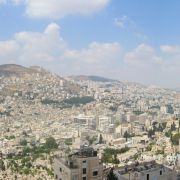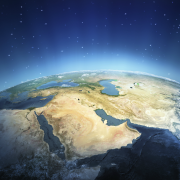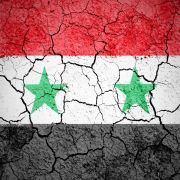Expert Analysis / Israel-Gaza Conflict '14
Click on the links below for English-language articles featuring TAU Middle East experts:
Prof. Uzi Rabi and Dr. Harel Chorev on how to deter Hamas (Huffington Post)
Extract: What might cause Hamas to consent to a ceasefire? There is another question in the Israeli public discourse, no less important -- what might deter Hamas from renewing the cycle of violence in the long term? The answer to these questions lies in understanding the organization's concept of struggle.
Prof. Uzi Rabi on Egypt's role in Israel-Hamas ceasfire talks (Toronto Star)
Extract: Egypt, which is helping to broker the ceasefire — and has cracked down heavily on its own Islamist opposition — is “setting out a formula that is difficult for Hamas,” said Uzi Rabi, a professor of Middle Eastern studies at Tel Aviv University, in a phone conference. “Hamas wants a ceasefire first, negotiations later. Israel, (Palestinian leader Mahmoud Abbas) and Egypt want the opposite. They are trying to come up with a deal that marginalizes Hamas, because its agenda could destabilize the region.”
Prof. Uzi Rabi on Qatar's role in the Israel-Gaza conflict (Times of Israel)
Extract: While Israel emphatically does not want Qatar involved in talks over a ceasefire in Gaza, said Uzi Rabi, director of the Moshe Dayan Center at Tel Aviv University and an expert on the Arab Gulf, it may be faced with an American dictate to compromise. “This places US-Israel relations in a tough spot,” Rabi told The Times of Israel. Like Egypt, Qatar is viewed as a biased broker by some of the parties (namely, Israel and the PA) and is therefore limited in its effectiveness, he added.“While the US is playing a less dominant role in the ceasefire efforts, the potential mediators are partial. Egypt and Qatar are not mediators in their essence,” Rabi said.
Prof. Eyal Zisser on Al Jazeera's support for Hamas (Jerusalem Post)
Extract: Al Jazeera, the popular pan-Arab news site, tops its website with gruesome pictures and videos of dead bodies and bombed areas in Gaza on a daily basis. The station’s importance is greater during the holiday of Ramadan, when Muslims fast during the daytime and many are on vacation, spending more time watching television. Eyal Zisser, a Middle East expert from the Moshe Dayan Center at Tel Aviv University, told The Jerusalem Post on Sunday that Al Jazeera is fully supporting Hamas, and not the Palestinian people. Zisser said that the Qatar-owned station has been supporting the Muslim Brotherhood and was against the overthrow of former Egyptian Brotherhood president Mohamed Morsi. Qatar also funds Hamas."
Prof. Eyal Zisser on the "regional battle to broker a ceasfire" (TLV1 Radio)
Prof. Eyal Zisser of Tel Aviv University explains how the new balance of powers in the Middle East is reflected in the ceasefire negotiations. Is the conflict between Israel and Gaza becoming a proxy war between the moderate-secular and religious nations in the Sunni world?
Dr. Mira Tzoreff on Egyptian President al-Sisi's antagonism toward Hamas (Tel Aviv Notes)
Extract: Egypt’s position during Israel’s military operation against Hamas (“Operation Protective Edge”) should be understood in the context of Egypt’s internal challenges and Sisi’s position as a president “on probation.” Sisi perceives Hamas as an affiliate to the Egyptian Muslim Brotherhood that is threatening Egypt’s borders and endangering its security. He also views Hamas as jeopardizing Egypt's attempts to revive tourism in the Sinai and improve the socio-economic standing of the Bedouin population in the peninsula.
Dr. Harel Chorev, "Hamas: Charting a New Strategic Course of Action (Tel Aviv Notes)
Extract: Unlike in the past, the latest escalation of violence between Hamas and Israel is not another tactical and limited round. It is instead part of a new strategic direction taken by Hamas in an effort to capitalize on the circumstances created by the July 2 murder of a Palestinian youth, apparently by Jewish extremists, in Jerusalem. In so doing, Hamas intends to create a meaningful change in its difficult geopolitical, economic, and intra-Palestinian position."
Prof. Eyal Benvenisti on Operation Protective Edge and international laws of warfare (Globes)
Extract: "The moment that there are fighters or military targets in an area, it is not proof against attack. When there is a civilian population, you have to avoid harming it as far as possible. The question is how far the harm to the population is out of proportion to the military target. If there is one grenade and 100 million people around it, then you will certainly not fire at it, but if there's a nuclear missile with ten people around it, then you certainly will. There's no fixed formula here. In Operation Protective Edge I see that there is house-to-house fighting, and so it seems that a proper effort is being made not to harm civilians." - Prof. Benvenisti
Dr. Benedetta Berti on disarming Hamas (Foreign Policy)
Extract: Longer-term disarmament of the armed factions in Gaza has to be seen as part of a broader political process linked to state-building and economic development. Disarmament and demilitarization programs work when the broader population and militants decide that military activity is no longer necessary -- that the political and economic benefits of peace outweigh those of violence.
For commentary in Hebrew, visit the Moshe Dayan Center for Middle Eastern and African Studies' website and Facebook page.





